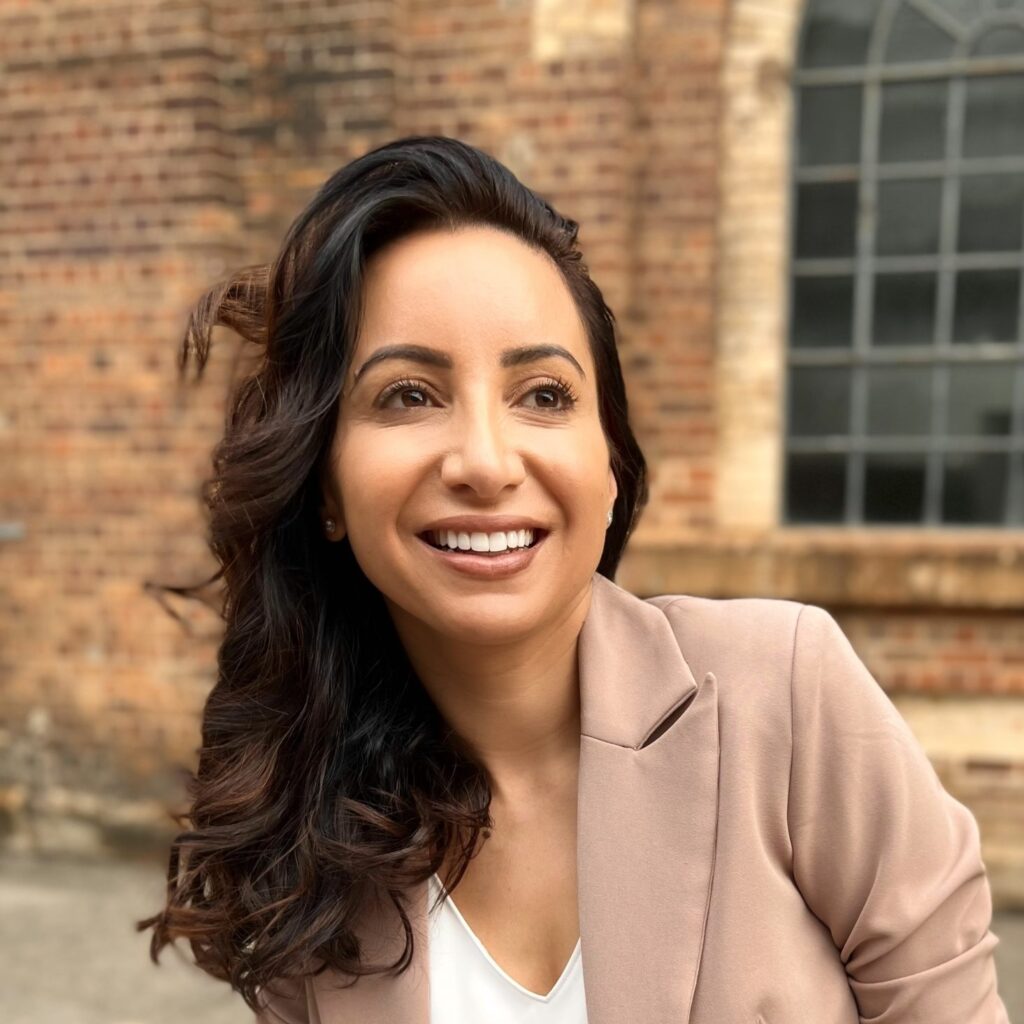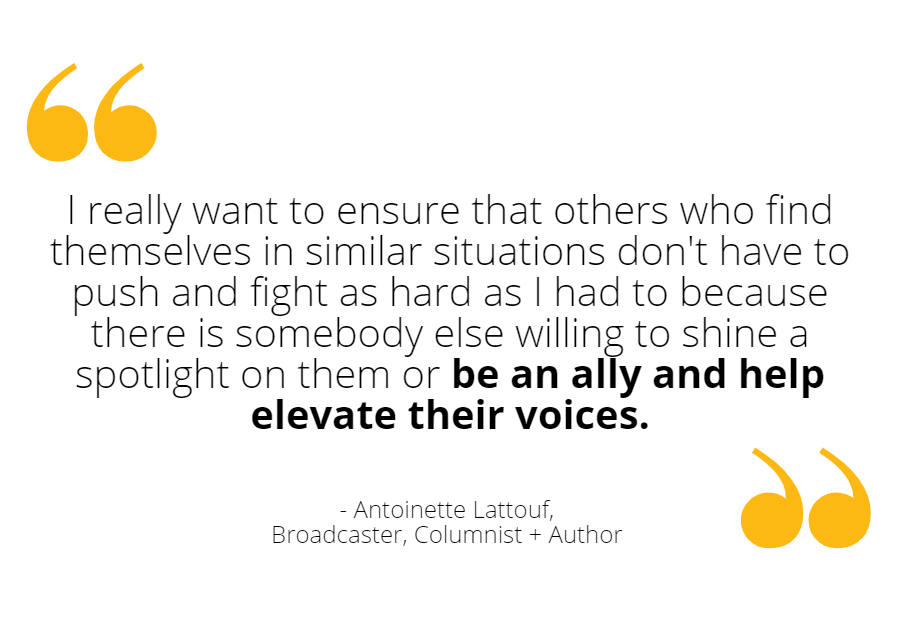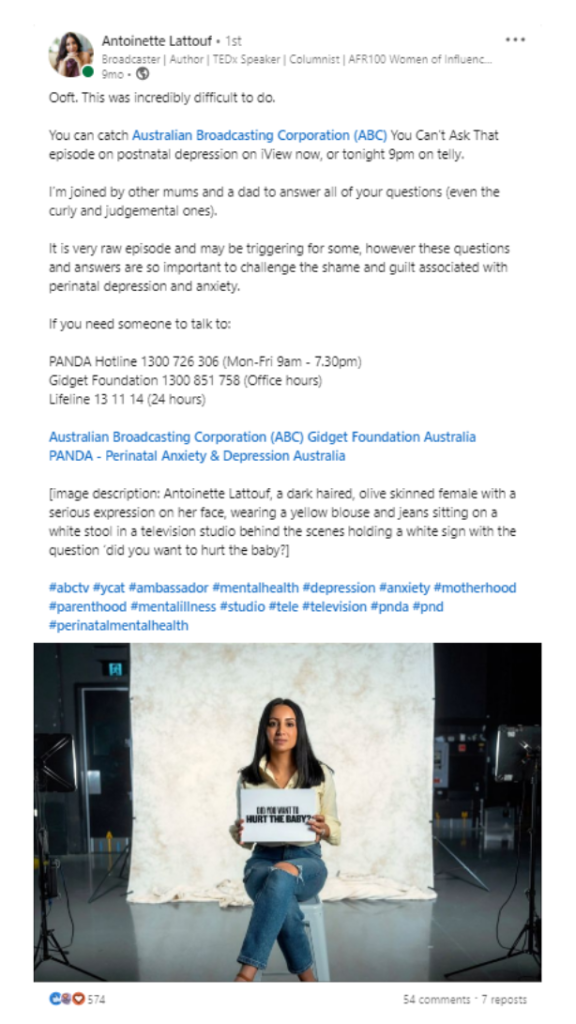In this episode, we’re exploring how leaders can use social media to help other voices be seen and heard online. Now, if you scroll through any of your social media feeds today, you’d be forgiven for thinking it was anything but social.
The common criticism of social media is that too often it’s just all ‘me, me, me’, whether it’s advice or a humble brag or simply self-indulgent stories designed to give the author a moment of celebrity. And sadly, this is one of the main reasons why so many leaders choose to avoid social media themselves, opting out of the seemingly ‘global vanity project’ it can at times appear to be.
When good leaders aren’t seen or heard online, when diverse and different voices are lost, that has a real trickle down effect. As the saying goes, ‘you can’t be what you can’t see’. And this is equally true on social media. When leaders stay quiet and leave social media to the loudest voices, we’re less likely to see and hear wonderfully rich and diverse stories.
Social media should be about sharing the stories that often aren’t heard elsewhere and leaders play an important role in changing this reality. We’ve talked about the concept of ‘me versus we’ before on this podcast. So I’m thrilled to to continue the conversation in this episode with Antoinette Lattouf – someone who understands this challenge and reality better than most. Alongside many other achievements, Antoinette is a broadcaster, columnist, author of ‘How to Lose Friends and Influence White People’, and co-founder of Media Diversity Australia, which is a great example of how she uses her own voice and influence to help others get heard.
Here’s a snapshot of our conversation. I hope you find it as insightful as I did.

Roger Christie: There is this default perception that social media is all ‘me, me, me’ and that’s one of the reasons why leaders and executives stay away from it. But when you look at it through the lens of helping other voices be heard, elevating other people and other stories, it takes on a whole new value of meaning. So, the first question I’d like to ask you is, why do you think it’s important for leaders to use their own social media profiles to help other voices be heard?
Antoinette Lattouf: For so many reasons. One of the main things I would say is it’s so important when you are a leader to recognise the power and the privilege that you have. That you can probably say and do things with less backlash. But not entirely, no backlash.
I find as my career progresses… I’m more willing to stick my neck out because I’m not worried that I’m not going to get that entry job after leaving high school. I’m not worried that I’m going to be socially alienated. I know that I can bounce back.
So in many ways, especially when it comes to marginalised voices or people that have less power – women, people from the queer community, people of color, people with disability. When you are in one of those situations, you have less power and it is so helpful to be amplified or supported by somebody else.
I do this for others because it was never done for me. As somebody who grew up, very working class, public educated, from an Arabic speaking background, refugee background, I had no power and no avenue. I really want to ensure that others who find themselves in similar situations don’t have to push and fight as hard as I had to because there is somebody else willing to shine a spotlight on them or be an ally and help elevate their voices.

Roger Christie: I want to go back to touch on something you said before, Antoinette, where you talked about your challenges with mental health. I think that this is something that, as far as an experience goes, and as far as an authentic story goes, you do have your facts straight because for you it’s a lived experience.
I was watching not that long ago the ABC and saw the show ,’You Can’t Ask That’. All of a sudden a familiar face popped up on the screen talking about postnatal depression. Now that’s a really tough topic to cover and you have your own reasons for participating and for sharing your story. What I’m interested to know is, again, in the context of lesser heard stories and lesser heard voices, what happened on social media after that episode went to air? What, what response did you get from people personally?
Antoinette Lattouf: The response was enormous. And even the decision to do that was a really tricky one. Now that I look back at it I can’t watch it because I’m so vulnerable and it was so hard. I stand by my decision to do it, but it did make me question whether I’ve paid it forward enough – whether I’ve done and tried to help enough. Because what happens afterwards is the response is so overwhelmingly. Positive is a strange way to put it. It resonates with a lot of people; people who’ve had those similar experiences, partners, people who don’t even have children.
So many people reached out. But within that reaching out, a lot of people then felt compelled to share their experiences. That’s an additional emotional and mental load that can be really tricky if your current mental state is a bit precarious. And so what I’ve had to now do is go, yes, I want to be a voice, I want to make it easier for others, I want to show leadership, I want to show strength and resilience. But at what cost?
And I think it’s important as individuals, as leaders and as professionals for us to really balance and weigh up the pros and cons. There was a definite pro. It resonated and it also shows people who think, ‘Oh she’s got her sh*t together and she’s successful, she’s tough’ and all of those things that I have this real vulnerability and this real struggle. I think it challenges people’s perceptions of strength and resilience.
But at the same time, how much of that is going to impact you and set you back? It’s something I’ve constantly juggled within my mental health ambassadorship work. Especially because it opens the floodgates for other people to reach out to you with, ‘I’m feeling this, I’m feeling that and this is what I’ve tried to do’. All of a sudden I’m trying to be a conduit and go, okay, I think you need to call this helpline and I think you need to do this.
And I want to listen. I would never ignore somebody who reaches out to me. But that’s an enormous workload and an emotional burden for me to take on. So I would say that it resonated with people and people were very gentle and kind online, but it also meant that people offloaded a lot. And that’s, well – that’s heavy.
Roger Christie: That’s really heavy. I can hear the tension between grappling firstly as to whether or not to do it and what the pros and cons will be and then the ramifications. Again, equally positive and negative.
As part of that, what’s really interesting for me hearing you talk through that is there’s a risk in speaking up. There’s a risk in speaking up on something that is really close to your heart and that you’re passionate about.
And I think particularly in the context of this discussion, a not necessarily taboo topic, but a rarely discussed topic that leaves you as a leader quite vulnerable. And it’s funny because I’ve always looked at that as bravery. I’ve always looked at that as courageous without necessarily respecting what then comes back, which is entirely the point of having these discussions to help other people share their own story. I don’t think I’ve personally respected the impact that would then have as it comes back. You are putting your neck out as a leader every single time.
One thing I know you are big on and I am too, is understanding of your why. I think if you understand your why, what you’ve just described there in terms of the potential ramifications in the future, whether it’s yourself or for others that are close to you, you think those things through. You don’t just go in in the moment a knee-jerk response. If you’re clear on your why, you can enter into discussions that are potentially controversial, potentially sensitive, potentially going to offend other people because you know where you stand on them and you know why you’re having that conversation.
As a result, you limit your risk to a much greater degree than you would if you go in blind – with your eyes closed. That goes back to your point about doing your research and knowing what you stand for personally, but also understanding the context of the conversation you’re entering into.
Antoinette Lattouf: I absolutely agree with all of that. It’s so important and thankfully I have embarked on that journey. But I would say that I think a lot of people haven’t. They’re kind of just swinging wildly or trying to make a mark and are not sure exactly why.
I believe so strongly in this that I’m prepared to cop some fallout, because the bigger picture and the bigger gain is worth it. And I’ve braced myself and prepared myself for some of that fallout. I guess that’s how I’ve maintained my energy and resolve.
Roger Christie: I think I’m simplifying it greatly, but by doing that, and by absorbing some of those punches, that’s what gives that buffer for those people who are at the start of their journey. Those who don’t feel that they have a voice. That’s what gives them a protective buffer to speak up. So in a way, you’re absorbing the punches so they don’t have to. To give them a good start in this environment. And that’s exactly the goal here. Not to quieten those stories that haven’t been heard, but to give equal opportunity for stories that haven’t been heard.

Feel free to drop Roger Christie or Antoinette Lattouf a note with any thoughts – they’d love to hear from you. If you want more on all things digital reputation, be sure to subscribe to the Your Digital Reputation newsletter packed full of advice, trends and the best leadership examples just for you.

